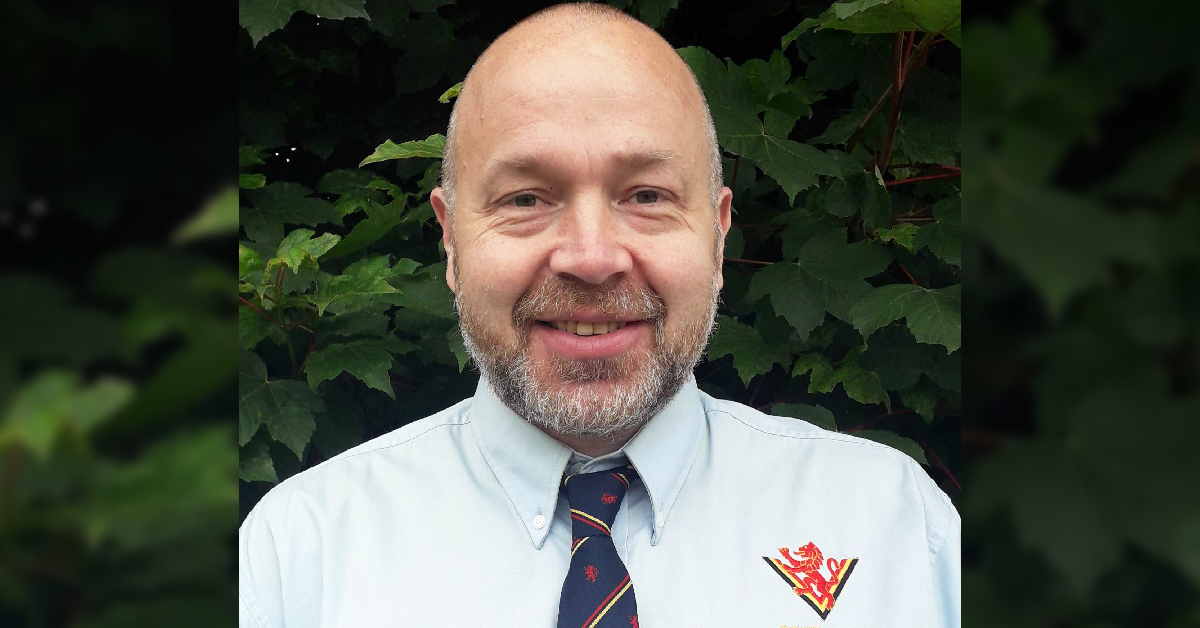
Ciarán McWilliams is a humanist pastoral carer and the Northern Ireland Regional Coordinator for the Non-Religious Pastoral Support Network. As well as recently becoming the first humanist pastoral carer to be appointed to a rugby team, he’s also the first person ever to provide humanist care in Northern Ireland’s high-security prison, Maghaberry. We caught up with Ciarán to talk about his work, motivations, and how humanist pastoral care has changed his life.
Hi Ciarán, what first drew you to humanist pastoral care?
After being diagnosed with multiple autoimmune diseases, I had to endure many long stints in the Royal Victoria Hospital in Belfast. I was approached by a wonderful Christian chaplain, we discussed many things and when I explained I was non-religious he offered me the support of a humanist pastoral care volunteer. She was amazing – a fantastic listener, empathetic, comforting, open and honest, and an absolute pleasure to be around. I didn’t even know that non-religious pastoral care was a thing and I had to know more. She put me in touch with Northern Ireland Humanists. I became a member, and once I was out of hospital, I applied to become an accredited pastoral care volunteer for the Non-Religious Pastoral Support Network (NRPSN).
How does pastoral care relate to your view of life as a humanist?
Offering emotional and spiritual support to others in need, being with other people when they ask for it, then sharing that moment in time with them is a very basic summary of pastoral care. My own view of life as a humanist is knowing time is precious and none of us can escape death. I believe we have one life, this life, and that we must live in the here and now. We should live our best life, but also be there for others too, because all we have is each other. Pastoral care volunteering allows me as a humanist to accomplish this and more.
Why, in your view, is humanist pastoral care essential?
It is important that religious folk are afforded the right to have a representative from their own belief system present if they need pastoral care. However, our NRPSN accredited volunteers are trained to offer support to anyone regardless of belief. As we know from the Northern Ireland Life and Times Survey, the number of people moving away from religion is growing and the need for humanist care in the community has never been greater. My own personal experiences of receiving pastoral care from religious chaplains was mixed – some good and some unfortunately terrible – whereas pastoral care from someone with similar or the same beliefs and worldview was life-changing for me.
Tell us more about your recent appointment at Ophir RFC.
I’ve been a member of Ophir RFC for thirty years. In that time I’ve been a player, referee, committee member, coach, and youth convenor. Ophir RFC is an old club that traditionally only catered for adult mens’ teams, but over the last decade or so, the club has slowly started to grow, meaning we needed to move to a new facility. This growth – the new state-of-the-art sports facility and complete club transformation in the last two years – has changed Ophir RFC into a vibrant, diverse, and inclusive community for all. My experiences in the Youth Convenor role was one that required me to step away from the rugby pitch and be more involved with the club as a community, and on many occasions my pastoral care training and experience was needed. With the club’s growth, it was felt by club officials that we needed someone to facilitate a role of offering support to the players, coaches, and wider community. With knowledge of my other roles for the NRPSN, the club asked me to be their first pastoral care and welfare volunteer. The role will require me to offer emotional support to the members of Ophir RFC and the wider community as it is needed.
Can you tell us more about why it is important that non-religious pastoral care is available for sports teams in Northern Ireland?
Currently there is only one sports team in Northern Ireland offering non-religious pastoral care – Ophir RFC. If any other sports teams believe they need this support it is undoubtedly something we at the NRPSN should explore.
Traditionally, the role of a sports chaplain has always been held by one specific religious representative (almost exclusively Christian), and very much based on prayer, which is perfectly fine if there is a need. The problem is that this role will likely aggravate others. An accredited non-religious pastoral care volunteer will give emotional and spiritual support for everyone who needs it, and while the four largest religious denominations jockey and compete against one another here in Northern Ireland, a neutral and progressive approach is always likely to work, especially if that approach caters for everyone.
When did you first begin to identify as a humanist?
I’ve been a humanist my whole life, I just didn’t know it. In truth, I had heard of humanism but didn’t know much about it. I called myself an atheist until 2015, but when my life was turned upside down and I was medically retired at 42 years of age, that changed. After getting support from a humanist pastoral carer and having a lot of time in hospital, I started reading up on humanism online. I joined Humanists UK as a member and started regularly attending Northern Ireland Humanist monthly brunches. Meeting so many like minded people (many of whom quickly became friends) and becoming an active volunteer locally, I started to identify as a humanist.
Which Northern Ireland Humanists campaign is closest to your heart?
I’m passionate and support all our campaigns locally here in Northern Ireland, but as regional coordinator for pastoral care for both Northern Ireland Humanists and the NRPSN, obviously the campaign closest to my heart is: equal access and funding for non-religious pastoral carers. Northern Ireland Humanists has trained a number of non-religious pastoral carers who are ready and willing to volunteer in hospitals and prisons. However, their inclusion in local ‘chaplaincy’ teams is at the discretion of the resident chaplain. We have, however, managed to get access to Maghaberry prison, offering pastoral care for all prisoners who ask for it – over 200 to date.
Ciarán, thank you for speaking with us.

